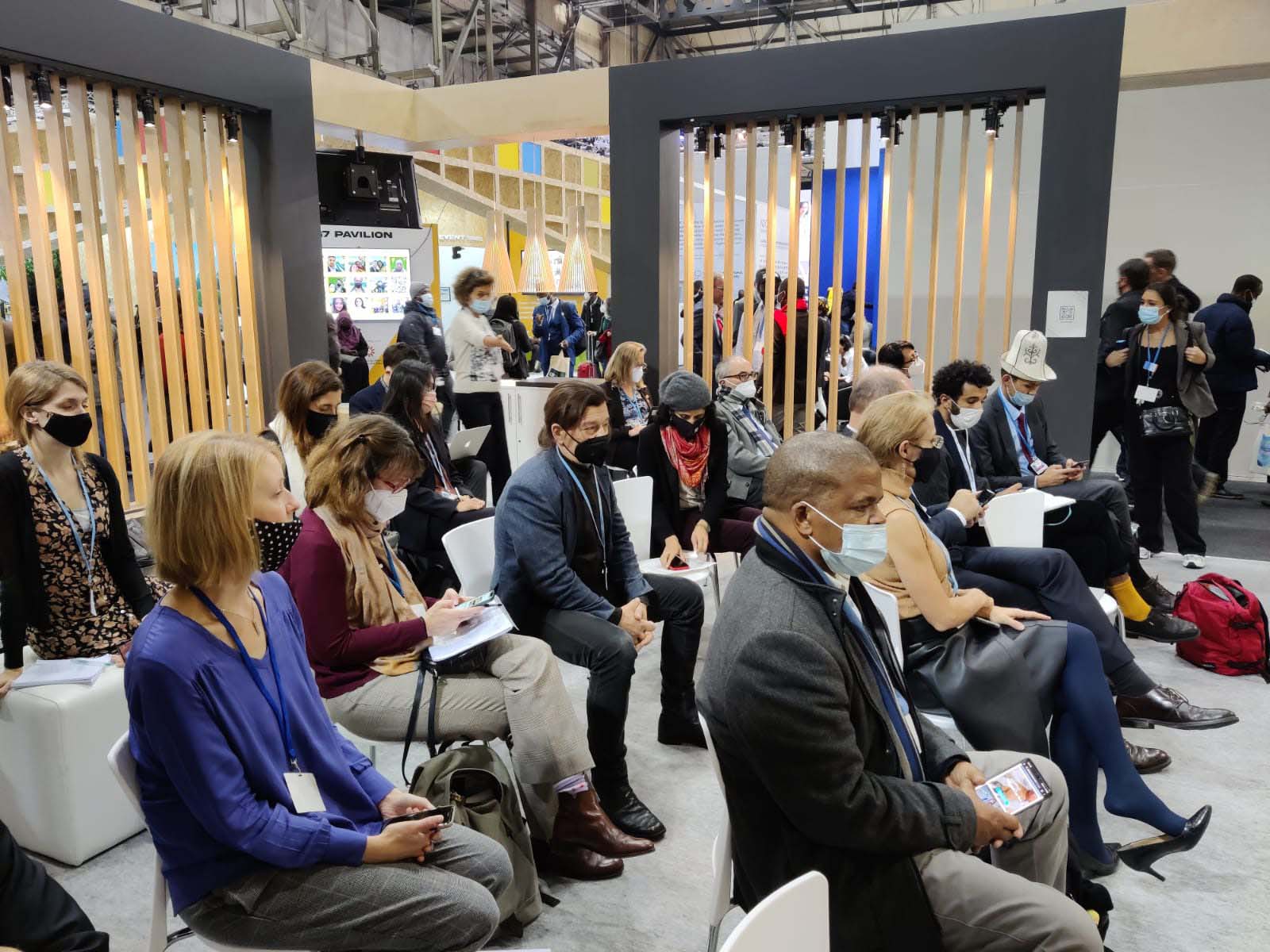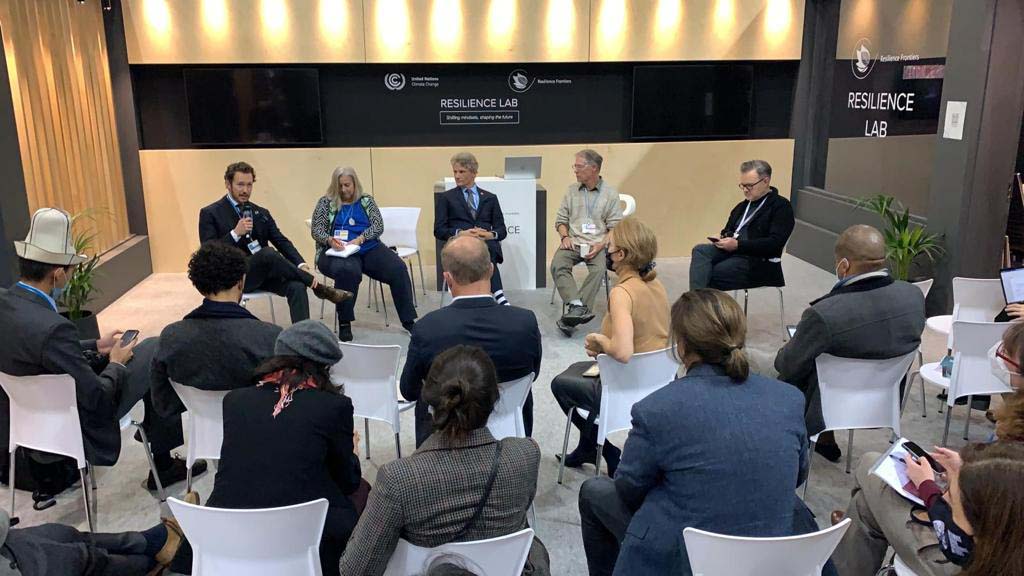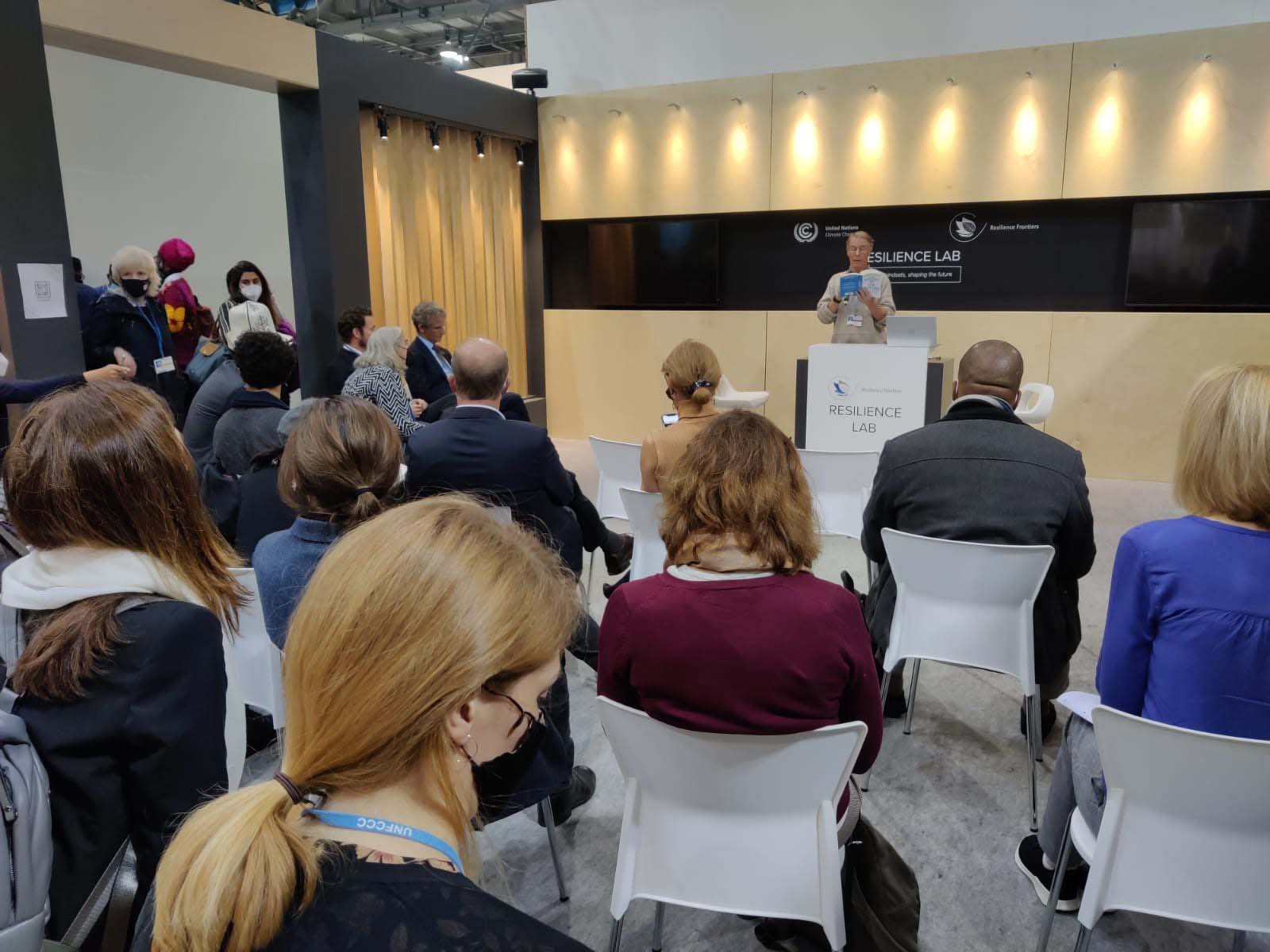Developing transformative financial instruments
Throughout COP 26, Resilience Frontiers has been challenging participants’ mindsets , aiming to promote a global paradigm shift towards resilience through eight novel pathways. On Thursday, 11 November, participants considered the final pathway, which focused on developing transformative financial instruments. Its goal was rethinking prosperity, growth, and value, and nurturing human wellbeing and the environment, while harnessing emerging technologies to transform financial networks and instruments.

Tia Kansara, CEO of Replenish Earth, introduced the pathway, drawing attention to participants’ definition of “wealth.” They shared ideas about the subjective nature of the definition of the term, but also recognized that general ideas of wealth are normally based on financial status. Some said that wealth can be linked to a person’s happiness. Others linked it to the privilege that comes with being able to plan things in advance, noting that people who lack financial security struggle to pay for future resources and have to survive on a day-by-day basis. Kansara further explained the limitations of using gross domestic product (GDP) as an index for accounting for personal and global prosperity. She challenged participants about their perceptions of what planetary prosperity means. They responded suggesting that prosperity can be enhanced through living in a way which increases the carrying capacity of the planet. They also discussed the linearity of the current economic model with many preferring a model which flows through “resilient circularity.” Others also pointed to the importance of shifting tax systems and government subsidies to incentivize working for social good.

The next session was chaired by Robert Filipp, Founder and President of Innovative Finance Foundation, with a panel featuring: Kim Stanley Robinson, Science Fiction Author; Elena Lopez-Gunn, Director of ICATALIST; Alex Gordon-Brander, CEO of Teratree; and Adam Rockefeller-Growald, Co-Founder of Teratree. Robinson recited passages from his book, “The Ministry for the Future,” opening a space for participants to imagine potential future monetary systems. Both Gordon-Brander and Rockefeller-Growald spoke about global problems which stem from economic systems that value material goods and personal wealth instead of planetary wellbeing. They promoted new decentralized financial mechanisms which they believed could be used to safeguard, not exploit, nature. Lopez-Gunn addressed the existential planetary risks human beings are facing and said that the economic system has failed at being equitable. She stressed that natural systems cannot and should not be monetized, because their value is intrinsic to life. Calling for a disruptive shift within economic systems, she highlighted the need for systems that promote long-term collaboration instead of competition, even at the risk of short-term monetary losses. Robinson opined that private-sector systems have rejected radical reform, preferring to only work towards the highest rates of return, even if that means making profit through extractive means. Responding to participants, panelists discussed equity concerns within financial mechanisms, the economic path towards transparency, and private sector regulation through government intervention.

The final session at the Resilience Lab at COP 26 moderated by Filipp, featured the following panelists: Kim Stanley Robinson; Alex Gordon-Brander; Valerie Tchuante, Forest Engineer at Central African Forests Commission (CAFC); and Olly Hicks, Ocean Rower and Explorer. Robinson read extracts from his book, sharing narratives related to economic systems. Gordon-Brander expounded on ideas around creating monetary assets from safeguarding nature, admitting that nature’s value is lost when using current tools and metrics. Tchuante said forest-sequestered carbon is worth billions of dollars, and the economic aspect of conservation should be considered to incentivize investors into supporting nature-protecting projects. Panelists also discussed the ocean as a ‘blank canvas’ resource, with some wondering whether opportunities exist to explore financial mechanisms to optimize this potential. During the discussion participants drew attention to the lack of diversity within cryptocurrency systems and imbalanced power structures.

The final pathway sparked a dialogue on equity, collaboration, and how we value nature. Through group discussions, reflection exercises, and expert panel conversations, the Lab explored thoughts around a subconscious desire to co-exist with the biosphere in a respectful, regenerative, and resilient way. At a reception celebrating the discussions held at the Lab at COP 26, Youssef Nassef, Founder of Resilience Frontiers, and Director of the Adaptation Division, UNFCCC Secretariat, thanked all participants who had engaged with the themes during the two weeks, welcoming them to the growing Resilience Frontiers community.

For more information about the Resilience Frontiers at COP 26, the programme of events and any updates, visit their website, and follow them on Twitter and Instagram.
To receive free coverage of global environmental events delivered to your inbox, subscribe to the ENB Update newsletter.
